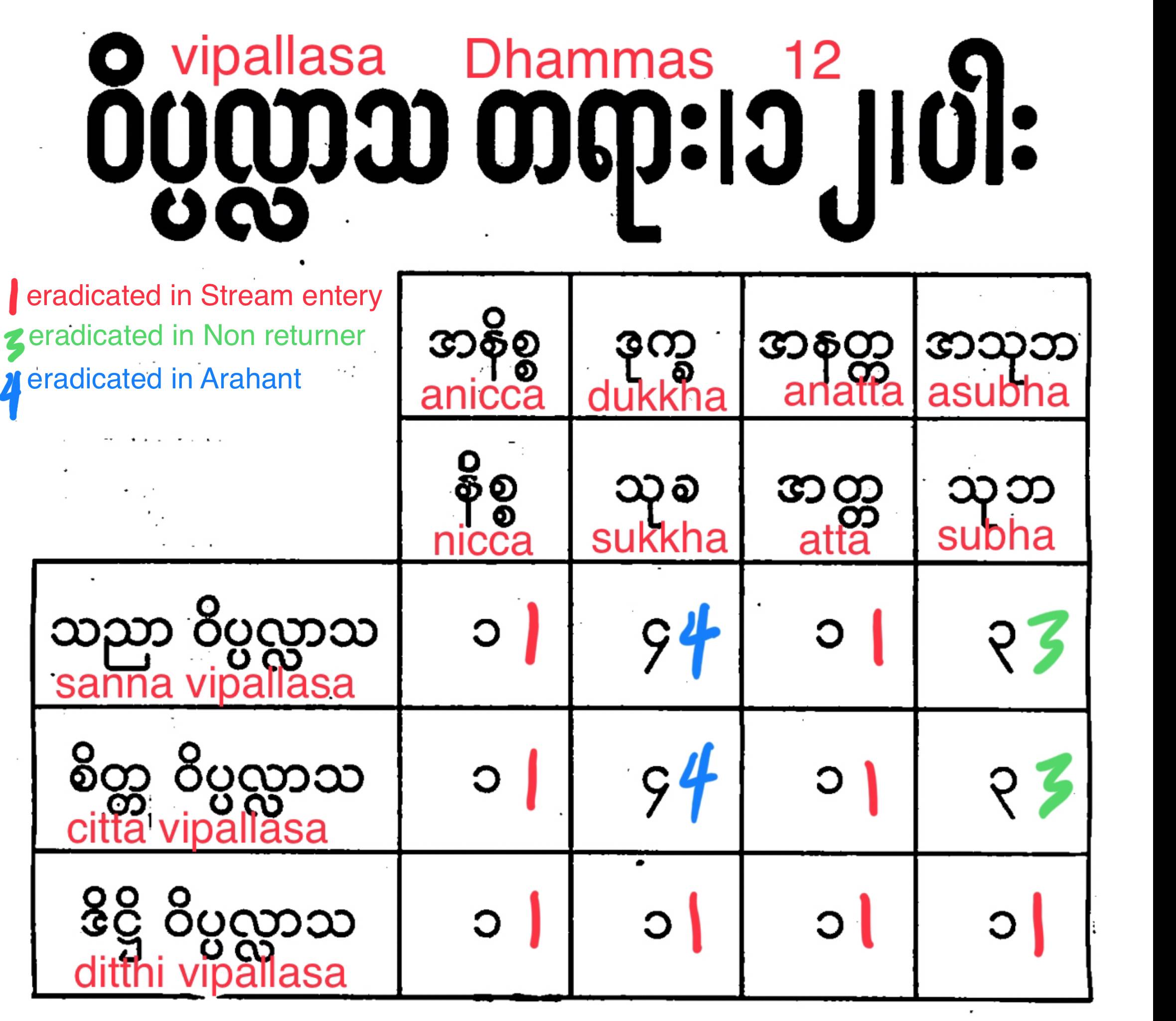This is very hard to understand the comparison without 4th Jhana experience in Pa-Auk Tawya school and without Abhidhamma knowledge because you need to see the real "trillion mind moments in a second" and you need to study each kind of these minds by yourself.
However, I am going to describe it. If you understand, remember that you understand just the concept, the real mind moment is very fast and you can't catch all real comparison cases without AnāgāmiMagga or 4th Jhāna experience.
Comparison is not only Unwholesome
There are 4 steps of mind moments:
- unmeditatable mind process on reality.
- unmeditatable mind process on reality's illustration.
- meditatable mind process on reality.
- meditatable mind process on reality's illustration.
The 1st step happens immediately after seeing, listening, etc.
The 2nd step happen after the 1st step switching speedy. This illustrations include reality's comparison, eg., direction, personal comparison, time, etc. This is at mind door, 6th Āyatana. However, it still depending on the reality objects at 5 doors, so it is unmeditatable because it is too fast and may of them depending on Past Karma.
The 3rd and 4th steps are meditatable. They know like the 1st and 2nd steps but experienced, faster, lesser Bhavaṅga. You can completely close your eyes, etc., to think of the object.
These 4 steps are consisting of 3 elements...
- Wholesome (thing should be developed)
- Unwholesome (thing should be given up)
- Neither wholesome nor unwholesome (thing should be completely understood on it's state, origins, and effects)
You should be completely understand all kinds of comparison to decide what comparison should be developed, should be given up, or just should be completely understood.
Everyone, included Buddha, has these 4 step,s included some comparisons, but the Arahanta has no 2nd element, included some comparison.
What is the comparison should be given up?
According to below reference, the pride is valuing some elements of aggregates more than "conditioned"--impermanent, displeasure, and uncontrollable.
And the only way to realize in "conditioned" is 4 mindfulness's objects relational analysis (Satipaṭṭhāna). You is going to give up the pride, if you analysis everything at every doors as the smallest elements which causes each others and arising&vanishing trillion times in a second everywhere.
It is not a problem, if you know the direction (comparison), time (comparison), good person (comparison), bad person (comparison) by this right view with wholesome mind because this right view causes the Metta (loving kindness) to you for others.
The comparison is important to live, but analysis it to choose only comparison by wholesome mind.
Reference:
Sutta. Khu. Paṭisambhidāmaggo Mahāvagge vipallāsakathā
{526.1} Ime cattāro vipallāsā diṭṭhisampannassa puggalassa pahīnā appahīnāti keci pahīnā keci appahīnā anicce niccanti saññāvipallāso cittavipallāso diṭṭhivipallāso pahīno dukkhe sukhanti saññā uppajjati cittaṃ uppajjati diṭṭhivipallāso pahīno anattani attāti saññāvipallāso cittavipallāso diṭṭhivipallāso pahīno asubhe subhanti saññā uppajjati cittaṃ uppajjati diṭṭhivipallāso pahīno dvīsu vatthūsu cha vipallāsā Pahīnā dvīsu vatthūsu dve vipallāsā pahīnā cattāro vipallāsā appahīnā ca 1- catūsu vatthūsu aṭṭha vipallāsā pahīnā cattāro vipallāsā appahīnāti.
Translation:

Visuddhimagga KhandhaNiddesa (Path of Purification Aggregate chapter):
That [pride] has the characteristic of haughtiness. Its function is arrogance. It is manifested as vain gloriousness. Its proximate cause is greed dissociated from views. It should be regarded as like madness.
middle discourses 6, majjhima nikāya 6, One Might Wish, Ākaṅkheyyasutta
A mendicant might wish: ‘May I, with the ending of the five lower fetters, be reborn spontaneously and become extinguished there, not liable to return from that world.’ So let them fulfill their precepts …
Ākaṅkheyya ce, bhikkhave, bhikkhu: ‘pañcannaṃ orambhāgiyānaṃ saṃyojanānaṃ parikkhayā opapātiko assaṃ tattha parinibbāyī anāvattidhammo tasmā lokā’ti, sīlesvevassa paripūrakārī … pe … brūhetā suññāgārānaṃ. (11)
SN (531-546) Uddhambhāgiya – Non-Sensual Bonds
(The detailed Sutta is to be copied from suttas 387-402 (paragraphs 3-33) with necessary changes for Non-sensual Bonds.)
I heard thus. At one time the Blessed One lived in the monastery offered by Anāthapiṇḍika in Jeta’s Grove in Sāvatthi, and addressed the monks from there:
“Monks, these five are the non-sensual bonds. What five? Greed for material states, immaterial states, measuring, restlessness and ignorance. Monks, for special knowledge of these non-sensual bonds the Noble Eightfold Path should be developed and made much.”
MN 118 PTS: M iii 78 Anapanasati Sutta: Mindfulness of Breathing
"In this community of monks there are monks who, with the wasting away of the five lower fetters, are due to be reborn [in the Pure Abodes], there to be totally unbound, destined never again to return from that world: such are the monks in this community of monks.
...
"Mindfulness of in-&-out breathing, when developed & pursued, is of great fruit, of great benefit. Mindfulness of in-&-out breathing, when developed & pursued, brings the four frames of reference to their culmination. The four frames of reference, when developed & pursued, bring the seven factors for awakening to their culmination. The seven factors for awakening, when developed & pursued, bring clear knowing & release to their culmination.
